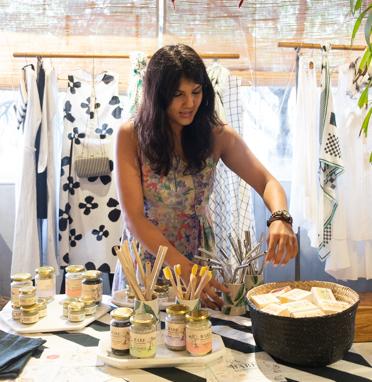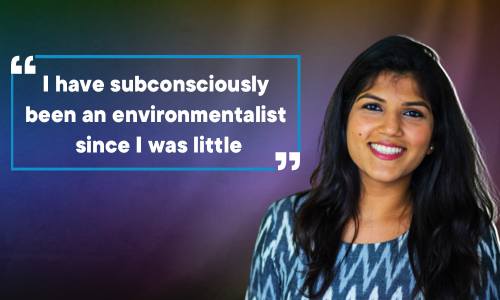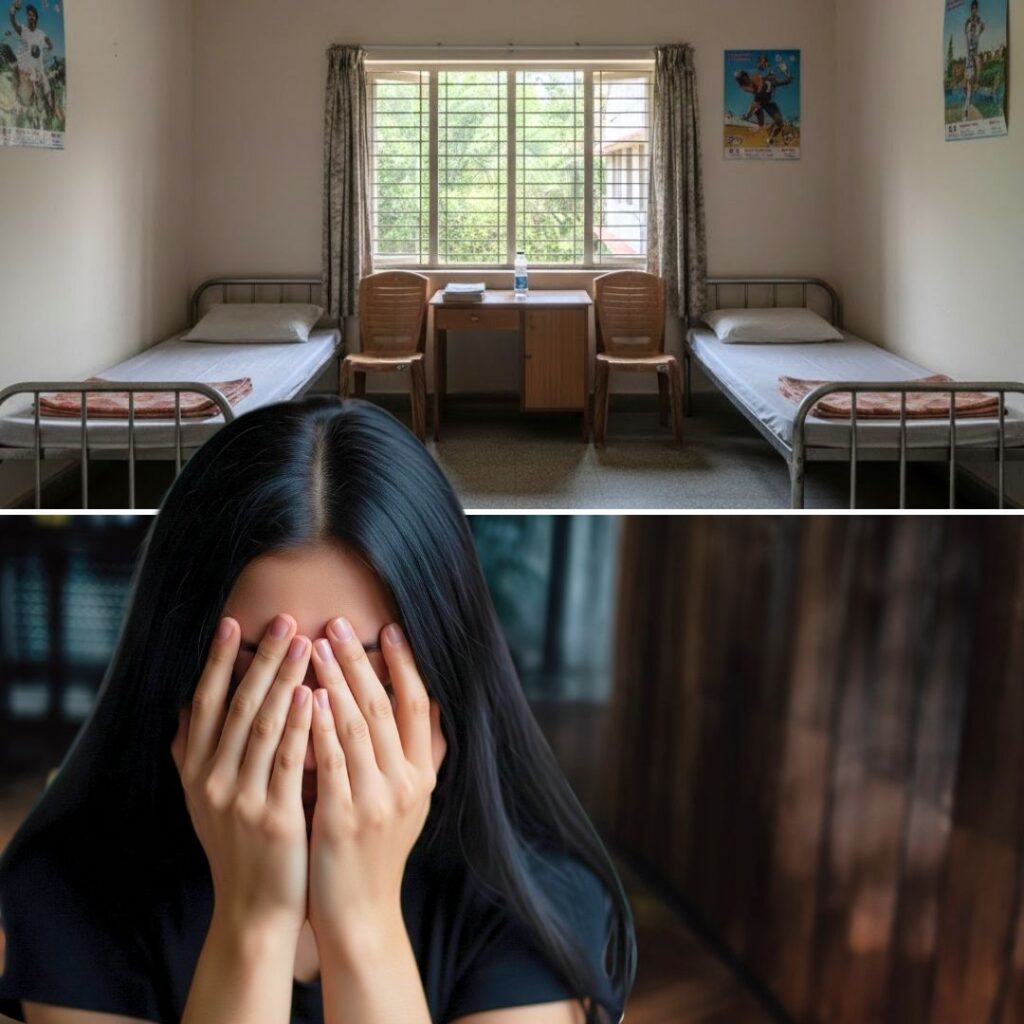I believe I have always subconsciously been an environmentalist since I was a little girl. My love for nature fostered while spending weekends in Bengaluru’s Cubbon Park with my dad, and two elder sisters, climbing trees and mostly falling off them.
My father absolutely loved nature, he never missed his morning walk in Cubbon Park and holidays for our family meant road trips, stopping on the way to jump into waterfalls, swimming, early morning walks, chasing sunsets and soaking in sunrises.
I lost my dad when I was very young, but being in nature continued to be one way of remembering him.
In my third year of college in 2012, I watched a video of Bea Johnson, the zero-waste speaker and author, in Professor Chris Chapples’s World Religions and Ecology class. I remember being blown away by Bea and her family’s lifestyle; but I also remember thinking to myself: “she can afford to shop at ‘Whole Foods’, or “she must have a lot of free time to make her own products.”
I also remember conclusively dismissing the likelihood of living a zero-waste lifestyle while being engaged in three jobs, maintaining my grades for my scholarship, having a fun social life and exploring the new city I came to call home.
Nevertheless, this course was a turning point in my environmental journey. It left me wanting to learn more.
One day, I walked into my Dean’s office and told him, “You don’t have the major I want.” He smiled and said, “Okay grab a chair, let’s create one!”
I added ‘environmental planning’ as my second major and took some classes in environmental engineering, environmental ethics and policy.
Looking at waste through my Cambridge and WHO lenses, it was an environmental issue and a health issue. But as I moved back home, I began to think of our waste problem as a social justice issue.
I moved back home to Bangalore in 2015 and was working at a solar energy company (social enterprise) called SELCO Foundation, that works on energy solutions for the underserved. I was also working with a community from West Bengal, who were waste pickers.
I spent time shadowing them and was most confronted by the social justice issues of our waste problem. Every day thousands of waste pickers segregate broken glass, sanitary napkins and needles all with their bare hands.
The thing about trash is that we are so caught up in this web of convenience that we don’t think about our personal trash and often attribute this to a larger global problem that we have no control over. The only time we think about trash is when we see or smell it stinking up our neighbourhood. The truth is that our trash problem is much worse than that—for our environment and our health.
Amy Korst, the creator of the Green Garbage Project, rightly said, “Trash is intimately connected to every environmental problem we face today, from climate change and habitat destruction to water pollution and chemical exposure. It’s also intensely personal and impacts every decision in our daily lives, including everything from how much money we spend to how much weight we gain”.
As I began to face the facts, I couldn’t believe how something as innocuous as our garbage could be negatively connected to so many of my personal and political concerns. I realised I had to address my own trash problem first. My solution – live a lifestyle that best reflects the values I cared about. I had called myself an environmentalist for about six years at the time.
Having studied environmental planning, environmental policy and environmental economics in college and graduate school weren’t enough. I needed to live a life more congruent to my environmental and social justice values. I needed to walk the talk.
My obvious resources when I started off was Bea and Lauren’s blog, but importantly were conversations with my grandma asking her what she did before shampoo started being sold in a plastic bottle? A lot of our Indian traditions are actually rooted in ecological practices or what we now can call “zero waste practices”.
Our stainless steel Indian ‘tiffin’ is another example of an Indian tradition that is celebrated by the zero waste movement. Having its origin in 18th century British India, this article involves a whole range of dishes and equipment and above all, its suppliers – the tiffin wallahs of Bombay.
This to me is an example of zero waste; creating 5,000+ jobs, and supporting community health by delivering home-cooked meals to over 2 lakh people – all without producing any trash! None of the food delivery apps of this start-up India era can even compare!
I started taking my first few steps in April 2015. The transition was incremental. For instance, when I ran out of soap, instead of buying store-bought ones, I would experiment and eventually learned how to make my own.
In my zero-waste journey, I realised we lived in a world with landfill destined products.
Toothbrushes, for instance, 4.7 billion of them land in the landfill every year and take 200-700 years to start decomposing. So every toothbrush you and I have ever produced is sitting on our planet somewhere!
However, I am still not completely zero waste – and I doubt I ever will be. It is good to know your boundaries.
In response to this problem, I wanted to create a company that mirrored the values of zero waste, ethical consumption and sustainability. I wanted to make it easy and accessible for other people looking to consume more mindfully and to encourage others to produce less waste. And thus, Bare Necessities was born.
We produce high-quality earth-friendly, zero waste products (such as compostable toothbrushes, lip balms, detergents, reusable straws) that are handcrafted by local women in Karnataka. All of our products are packaged in recyclable, reusable and biodegradable packaging, powered by natural, bare Indian ingredients; which have no harmful impacts on our health or environment.
Our entire supply chain is zero waste, from sourcing to delivering it to end-users! Being raised by a single mum, I wanted to create an enterprise that empowers women – I am very proud to say, we are a completely women-run enterprise. Bare Necessities has grown from small DIY workshops at flea markets to selling at stores across the country!
Translating my zero waste philosophy into products for those looking to consume more mindfully has been exhilarating. We seek to capture the essence of India – constantly in a state of transformation yet timeless.
We have sought to fashion and create products from ancient ingredients while keeping in mind the quality and standard requirements of a modern consumer has been a challenging process with deeply rewarding outcomes.
This has made Bare Necessities more than a beauty brand; it is zero-waste personal care, home care and lifestyle brand but also a hub for awareness on waste-free living.
The recognition given to sustainable business within various industries has helped raise awareness in the importance of conscious consumption. Be it the Make In India campaign or being titled Google’s Inspiring Indian of the year, support within this space has helped us introduce zero waste in India – a relatively new concept in the Indian, as well as global market.
At Bare Necessities (BN), it’s more than just selling products. It’s about encouraging an earth-friendly lifestyle. Earlier this year, we launched our first online course, ‘Zero Waste in 30’, a course that teaches you zero-waste changes you can make at a personal level to changes that you can bring on a larger scale. Through the expert insights, DIYs, informative videos and vast resources, you will be able to make your own informed choices about your life, and potentially make tangible differences on a broader global scale as well.

Four years into the zero-waste lifestyle, I have come to learn that it isn’t possible to be completely zero-waste. There are barriers that cannot be crossed at the movement. Nonetheless, it’s important we look at the plethora of benefits this lifestyle offers us:
Health: Since going zero waste, I feel more healthy since I am no longer buying processed foods.
Economic: I am saving money since I am making my own personal care and home care products.
Happiness: I think I am happier because I am prioritizing just being and experiencing rather than acquiring and buying. Also for the first time in my life, I can say I am trying to live a lifestyle that is in alignment with my values.
In the coming days, BN seeks to change the narrative on waste in India. We hope to become an interdisciplinary hub, a home for product designers to design products with a cradle to cradle philosophy, a place for policy analysts to work with local government on policy recommendations to manage our waste better, to reduce our waste. A place for behavioural economics, ecologists, researchers and consumers alike to build the ecosystem towards a circular economy.
Note: This series #SheLeads is in collaboration with the US Consulate General Chennai as a commemoration of Women’s Equality Day on August 26.
Also Read: #SheLeads: ‘Take First Step, Many Will Join’ Says Face Of Wheelchair Basketball In India











